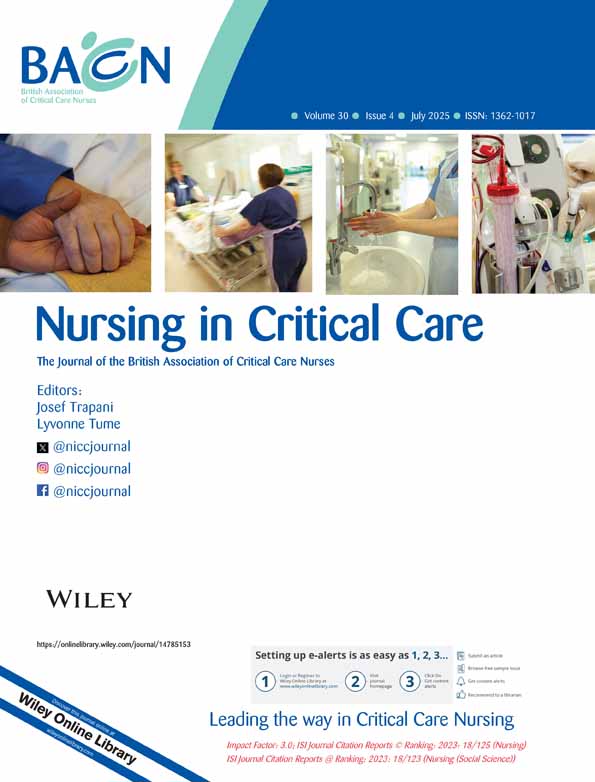Mitigating Nursing Care Rationing in Critical Care: The Power of Teamwork Dynamics and Safety Attitudes
Funding: The authors received no specific funding for this work.
ABSTRACT
Background
Critical care nurses frequently face resource constraints that necessitate rationing essential nursing care, which can compromise patient safety and lead to adverse outcomes. While staffing levels have traditionally been the focus of mitigation strategies, the role of teamwork dynamics and safety attitudes in reducing rationed nursing care remains unclear.
Aim
To examine the impact of teamwork and safety attitudes on the rationing of nursing care in critical care units (CCUs).
Study Design
A cross-sectional study was conducted among 270 critical care nurses in a university hospital in Alexandria, Egypt. Data were collected using validated tools, including the missed nursing care questionnaire, safety attitudes scale and nursing teamwork scale. Pearson correlation and stepwise regression analyses were performed to examine the relationships between the study variables.
Results
Nurses reported moderate levels of rationed nursing care, safety attitudes and teamwork. Safety attitudes and teamwork were significantly correlated (r = 0.650, p < 0.001), while both were negatively correlated with missed nursing care (r = −0.279 and r = −0.277, p < 0.001). Regression analysis revealed that teamwork and safety attitudes predicted 69.9% of the variance in missed nursing care (p < 0.001).
Conclusions
Addressing rationed nursing care in CCUs requires a shift beyond staffing-focused solutions. This study highlights that stronger teamwork and positive safety attitudes are associated with lower levels of rationed care, suggesting that fostering these factors can help nurses navigate rationed aspects of nursing care more effectively. Strengthening teamwork and promoting a safety culture may enhance the quality of nursing care and patient outcomes, even in resource-limited settings.
Relevance to Clinical Practice
Implementing regular rationed nursing care screening and robust missed care reporting protocols are pivotal strategies for nursing care at CCUs. Healthcare institutions must integrate teamwork training, promote a strong safety culture and implement proactive policies that empower nurses to navigate resource constraints effectively.
Conflicts of Interest
The authors declare no conflicts of interest.
Open Research
Data Availability Statement
The raw data supporting the conclusions of this study will be made available by the authors upon reasonable request.




